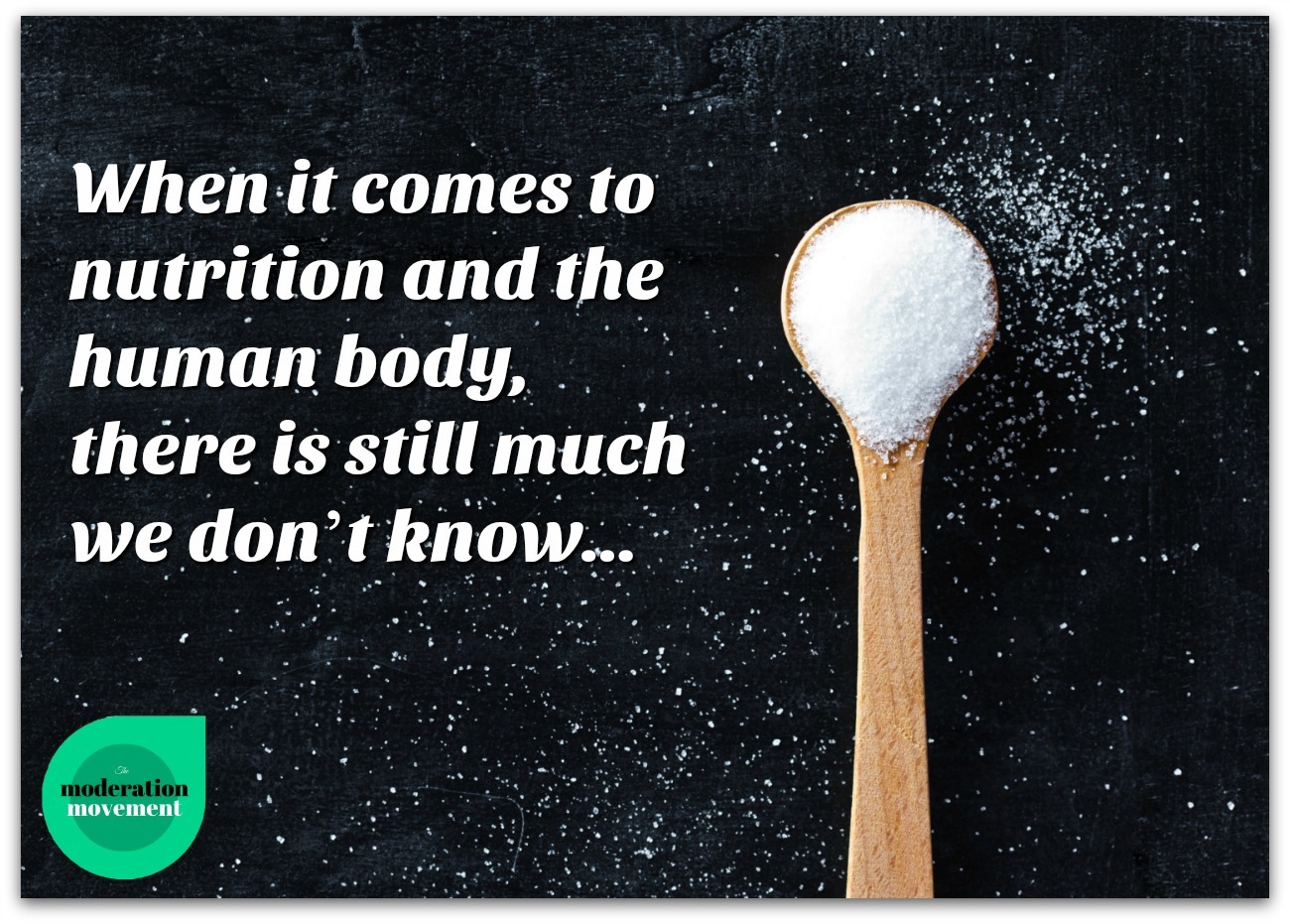When it comes to nutrition and the human body, there is still much we don’t know and we still have so much to learn.

When I first started working as a dietitian, I could be quite dismissive of anything not backed by mainstream science or medicine. After 13 years working as a dietitian one of the key things I’ve learned, is that just because science hasn’t proved something, or Western medicine doesn’t agree with a particular idea, does not mean that idea is necessarily wrong. The human body is complex and nutrition is still a relatively new science, which means we will always be discovering new things and sometimes we will make mistakes and we will need to change our stance and text books will need to be rewritten.
So now, when a client, or anyone, tells me their homeopathic remedy or sugar free diet is helping them, I don’t try to explain that homeopathy is not grounded in science or that they shouldn’t eat sugar free. I listen to that person and if they feel strongly an alternative treatment or particular diet is helping them, I simply move on to find out why they have come to see me and how I might be able to help them.
Once I have established a good rapport with the client and they trust me, it’s very likely at some point we would discuss whether or not they are truly benefitting from eating sugar free, if they feel they are, then it’s not my place to tell them otherwise. If the client has a very disordered relationship with food and finding themselves bingeing on sugary food, or feeling highly distressed whenever they eat something with sugar, then this conversation would come earlier, but then that client is not comfortably eating a sugar free diet.
I do however, get up in arms when nutrition claims that have no clear evidence, are broadcast as what someone MUST do to better their health. Or when a person, usually a celebrity or TV personality, uses their anecdotal evidence to encourage millions of people to do what they are doing because it worked for them. Especially when this can cause harm in some people, harm such as disordered eating, eating disorders, emotional distress, anxiety, poor body image and damaged self worth.
Peter F, Sarah W and Pete E may all have found salvation through quitting sugar (or going Paleo) and good luck to them, I am not denying it hasn’t helped them or many of the people who have also chosen to follow there rhetoric, but at this stage we don’t have evidence that what they promote actually improves health long-term (or on a population level), to be suggesting the entire population quit sugar or go paleo. The other factor we need to consider, is that if quitting sugar or going paleo is done in the context of calorie restriction with weight loss as the main objective, and often this is the case, then this is no different to dieting. There is clear evidence that dieting is ineffective and often leads to weight gain and that dieting is the number one risk factor for developing an eating disorder that does significantly worsen a person’s mental and physical health. No, not everyone who quits sugar or eats paleo will develop disordered eating or an eating disorder, but enough will and when there’s not enough evidence to back their claims, shouldn’t this be considered problematic?
We do have an issue of highly processed (often sugary) food being too readily available at the expense of more nutritious food and this can and does cause health problems. I strongly believe the issue lies with food industry and policies, rather than the food itself. I don’t know what is required to address this, but I do know that focusing on the food products and the individual as the problem, is leading to a significant number of people ending up with a disordered relationship with food and adverse mental and physical health outcomes.
